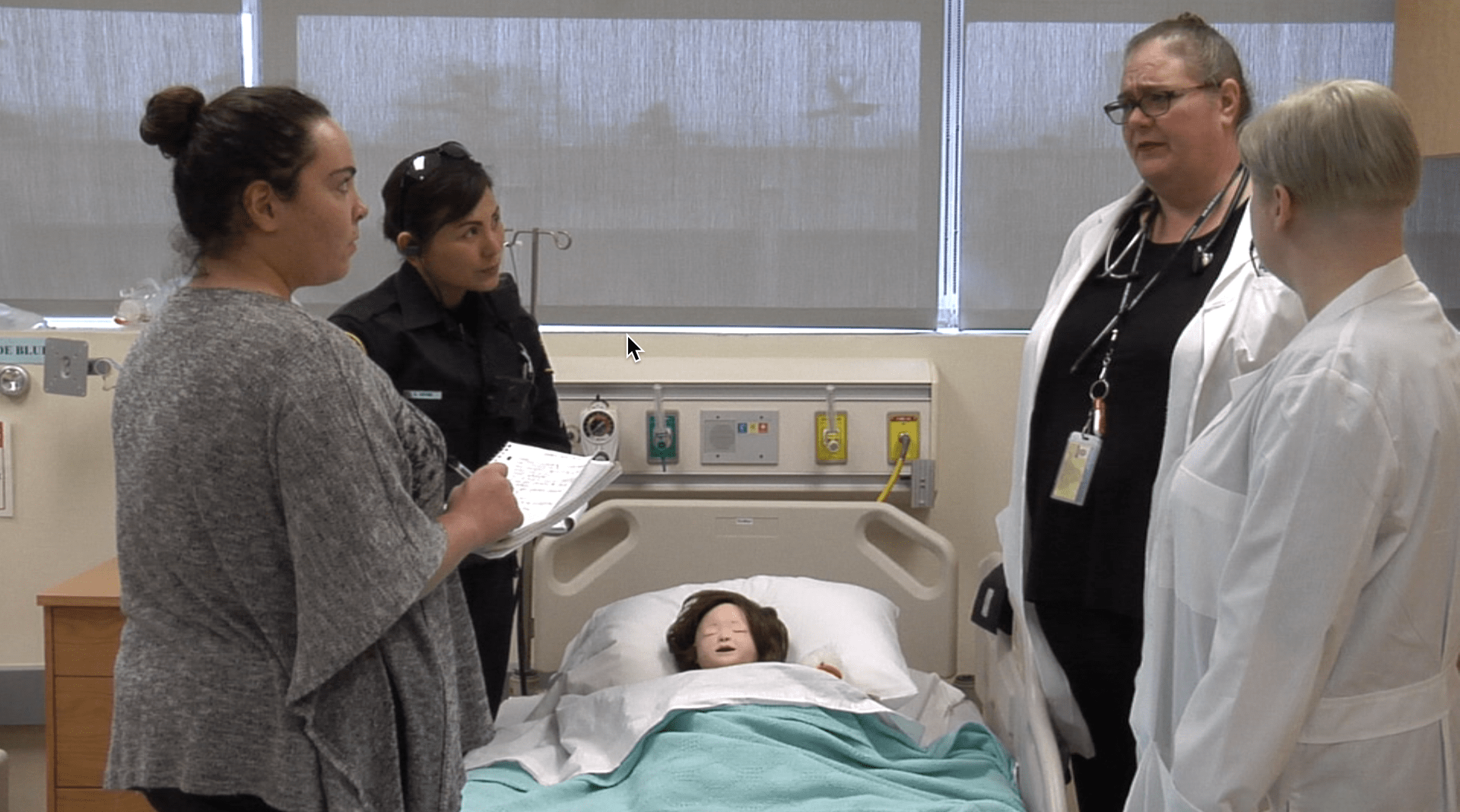By: Meekyung Han, Pnina Paulette Green, Peter Allen Lee, and Coleen Kohtz
If you subscribe to the adage that “there is no substitute for experience,” then you will be pleased to find out that simulation in social work is a close second. The development of student competencies is becoming more important as social work has emerged as more necessary in different aspects of life. Using simulations enables students to integrate social work theory, knowledge, skills, and values into practice to become competent social workers upon graduation. Based on experiential learning theory and collaboration with the Valley Foundation School of Nursing (i.e., the use of their residential and hospital emergency room simulation labs), the School of Social Work Title IV-E Child Welfare Program designed the advanced simulation course for second-year Master of Social Work (MSW) students specializing in child welfare practice. The course entitled “Advancing Child Welfare Practice through Simulation” was launched as the pilot seminar in the 2017-2018 academic year. The pilot was a success and is now an official course.
The simulation course was developed to create child welfare case situations on the key child welfare skills such as initial field visits, engagement, emergency safety assessments, decision-making, and collaboration with medical and law enforcement professionals. Utilizing a simulation model, the child welfare scenarios and activities are designed to provide students with a focused, practice-oriented learning environment that builds on their social work skills in the public child welfare setting and helps students incorporate critical thinking, problem-solving, and learning from a realistic environment. Furthermore, students were briefed on the case scenario beforehand, and at the end of each scenario, a debrief and group discussion followed. Faculty as the coach or facilitator provided immediate feedback to the student at the completion of the scenario. What is particularly instructive in the simulation exercises is the student (trainee) live interaction with “actors (child welfare subject experts from community partners such as child welfare social workers and law enforcement).”
While the students naturally experienced some level of anxiety before and during simulation, they reported feeling positive about their learning experiences, given the safe and supportive environment. The evaluative findings showed significant improvement in students’ competencies, practice skills, and abilities through the simulation course. Below are a few examples of students’ responses:
I felt the entire simulation training helped me learn about child welfare social work. It was very helpful to review the case before and talk about important risk factors, protective factors, and important questions and things to look out for in sim practice. I also thought it was helpful to debrief after each simulation.
Simulation labs are an awesome way to practice what to say and see other techniques used by classmates.
These real-life scenarios promote us with the ability to engage with clients and assess for risk and safety.
In addition to students’ testimonials, faculty see the invaluable benefits of this simulation training. Professor Pnina Green, Title IV-E Project Coordinator, said:
Simulation training allows students preparing for professional child welfare social work a safe space to practice their clinical case management skills through real-life child welfare case examples and to receive immediate constructive feedback from facilitators to apply in their field practice. Students also debrief with facilitators prior and following simulation scenarios, which facilitates questions and discussion on engagement, critical thinking, decision making, and investigation in child welfare practice. Although most of our students are nervous a bit initially, once they experience the value of learning and training through simulation, they are surprisingly agile and confident, and most importantly, enjoy this innovative learning experience.
Dr. Meekyung Han also affirmed the value of this training by stating:
This training has been successfully excelling the training objectives. The two-and-a-half-hour session of each simulation exercise allows each student to participate in the role of “social worker” in a scene during the scenario with a debriefing between the scenes. The course surely enables students to integrate knowledge and practice to reinforce the idea that learning occurs through doing and reflecting. I am extremely proud to be one of the founding members of this invaluable simulation training.
The simulation training provides students the opportunities to develop and practice social work skills in simulated real-life situations in a safe and supportive environment. Given the current COVID-19 situation, where in-person training may not be an optimal choice, we are exploring a few options presented in either a hybrid format (using Syminar, a live 360-video capture and broadcasting service) or in an online format (using virtual reality).
Dr. Peter Allen Lee, Director of the School, expressed: I am very excited about this child welfare simulation training and how it will prepare us for opportunities to use simulation in other aspects of our curriculum.
